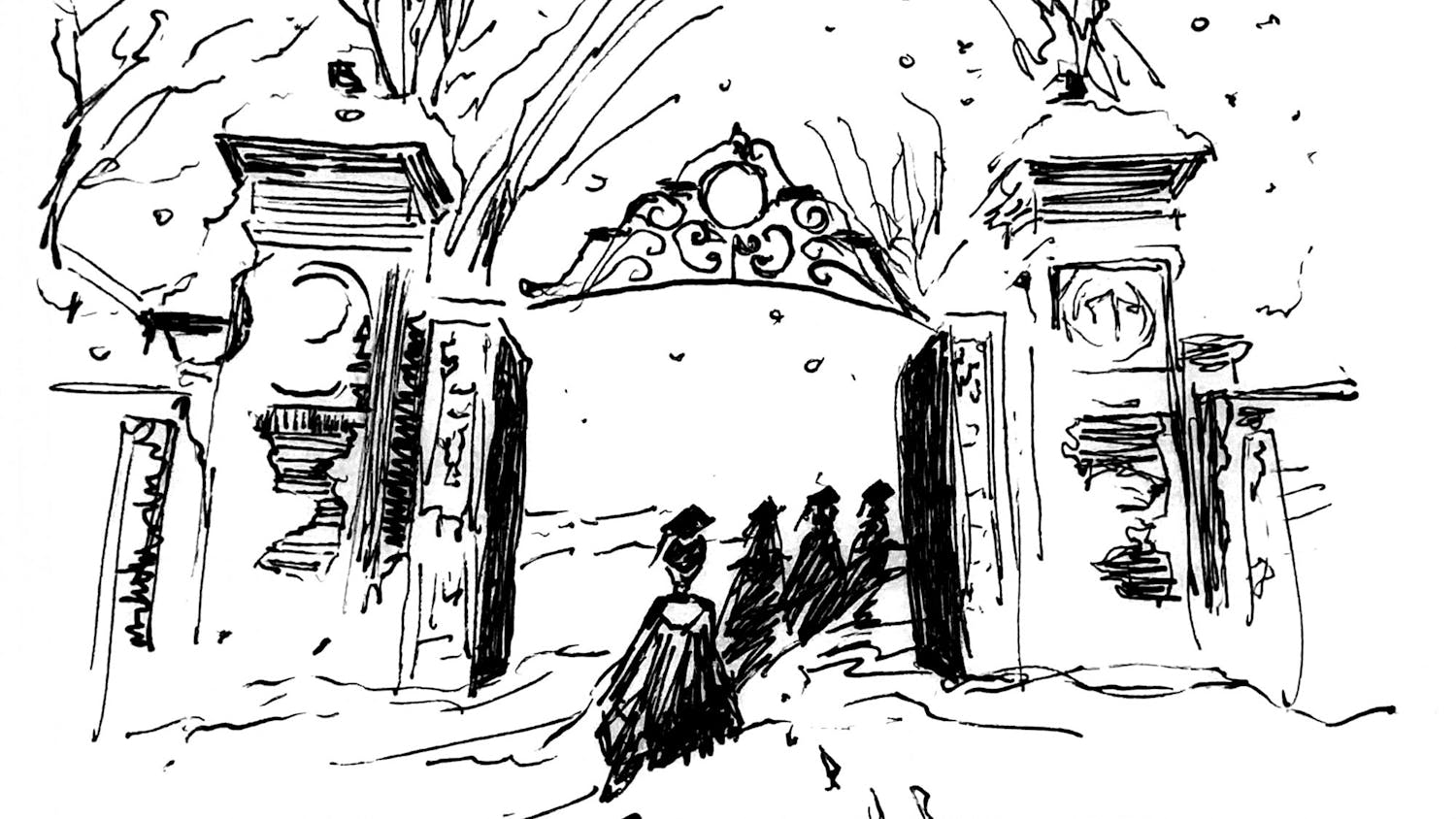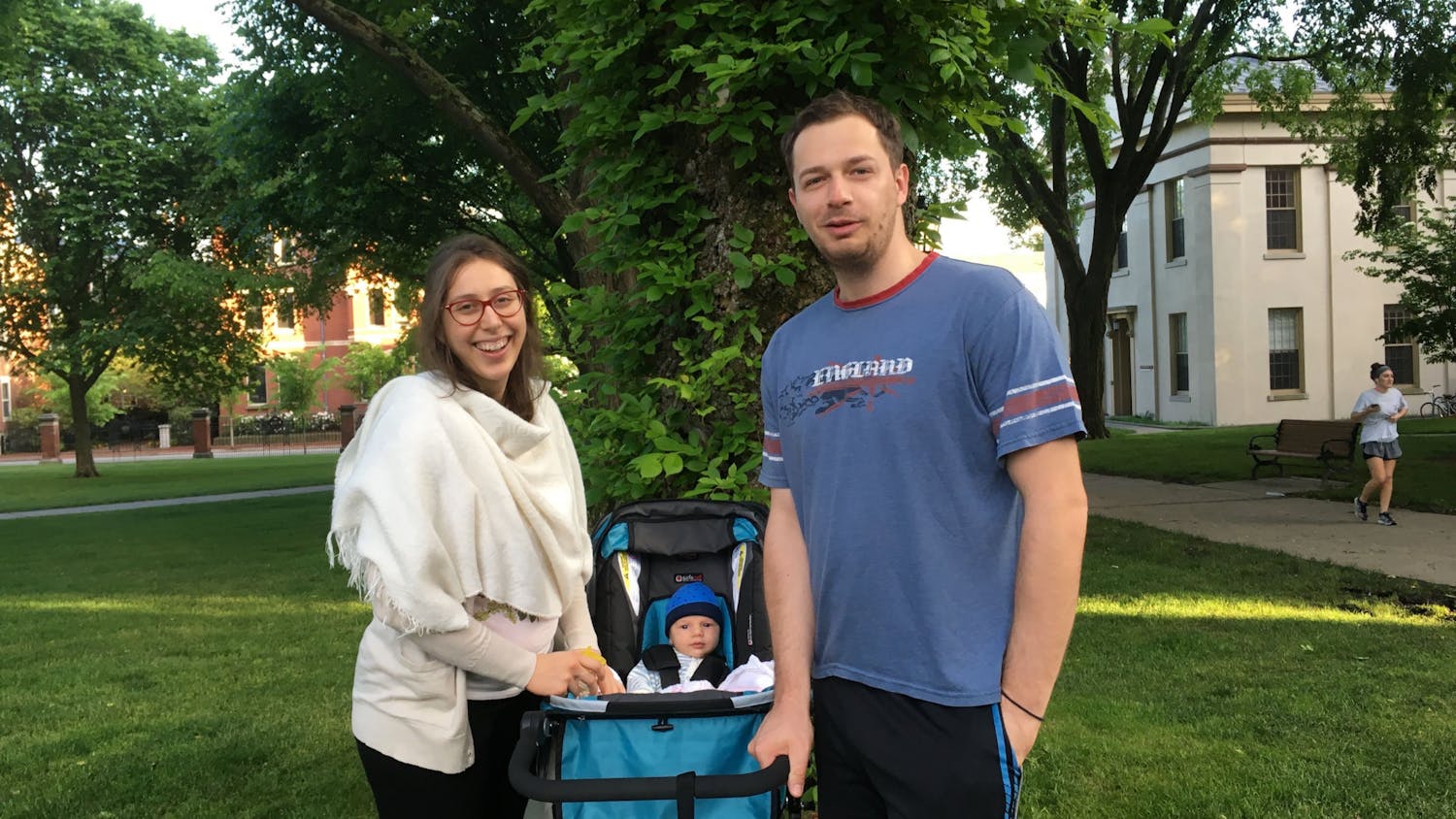Irina Kalinka GS, a sixth-year PhD candidate in the Department of Modern Culture and Media, became one of the first students at Brown to complete a doctoral certificate upon finishing the Collaborative Humanities program in 2019.
Kalinka was in her first year at Brown in 2017 — the year that the University introduced doctoral certificates to its curriculum.
Doctoral certificate programs are available to PhD students and “are designed to extend expertise into interdisciplinary areas and to certify training beyond the home PhD discipline,” according to the Graduate School website. The programs, offered at no additional charge, require PhD students to take three to five classes in the program of their choice, with some requiring an additional “piece of written work, internship, practicum or other project.” Students who pursue a doctoral certificate receive a note indicating completion of the program on their Brown transcripts, though they do not receive any formal documents beyond their doctoral degree.
The University recently began to expand certificate offerings across academic programs. Nearly three years ago, the University launched a similar certificate program for undergraduate students offering certificates in data science and entrepreneurship. At the beginning of the fall semester, the University created a new certificate in Engaged Scholarship.
For Kalinka, the idea of pursuing a doctoral certificate came inadvertently as she pursued her studies at Brown.
“I took a class on ethics and politics with Amanda Anderson right when they were conceiving of the certificate,” she said. “They were telling us that the seminar would count as one of the classes that you’d have to take to complete the certificate and that we could apply for the fellowship that goes along with it.”
As Director of the Cogut Institute for the Humanities, Anderson oversees the Cogut Institute’s Collaborative Humanities doctoral certificate.
“It’s really built around the idea that students would benefit from and find meaningful opportunities to engage in certain kinds of collaboration that they might not have access to in their home departments,” Anderson explained.
The number of certificate programs has grown since the University first introduced them in 2016. Currently, there are a total of 11 programs, ranging from Data Science to Gender and Sexuality Studies.
Associate Dean of Academic Affairs Thomas Lewis said that the certificates offer students manageable pathways to building interdisciplinary skills.
Lewis explained that students who cannot pursue a full Master’s in another academic department because of the requirements for their PhD program can utilize the doctoral certificate program to “participate in and document that level of engagement and serious commitment in another area.”
The exact requirements vary between doctoral certificate programs, but most include three team-taught seminars and a fourth course with a collaborative element, Anderson said.
Kareem Estefan GS, a seventh-year PhD student in MCM who has completed the Collaborative Humanities certificate, said that the team-taught seminars provided unique perspectives for his studies.
“Many professors that I was already interested in taking courses with were actually teaching together in collaboration,” he said.
Sometimes, the courses were taught with what Estefan described as “creative tension,” given that instructors “had different approaches and even disagreements,” he said. “We benefited from hearing both of those perspectives.”
The collaborative component for the Collaborative Humanities doctoral certificate is a project development workshop in which students across disciplines present their work and review each other’s papers, said Thomas Dai GS, an American Studies PhD candidate who is currently pursuing the Collaborative Humanities certificate. “It’s a kind of forum for graduate students from so many different departments at Brown to show their writing and research to other grad students not in your department,” Dai said. “You get these outside perspectives that you wouldn’t normally get.”
“They also bring in noted faculty in the different fields that people are working within,” he added. “It challenges you to figure out how to translate what can sometimes feel like very niche work to a broader audience within the humanities.”
Assistant Professor of Hispanic Studies Felipe Martínez-Pinzón, who directs the Hispanic Studies graduate certificate, said that the loose structure of the programs makes them accessible to students, as they have freedom in deciding when to apply to the program and take courses to fulfill its requirements.
“Since there are no requisites, the certificate is pretty malleable,” he said.
Alessandro Moghrabi GS, a fourth-year Comparative Literature PhD candidate who has completed the Collaborative Humanities doctoral certificate, said that he pursued the program because it enhanced the value of courses he would already be taking.
“A lot of the so-called opportunities that are presented to grad students are extra work with very little benefits,” he said. “The Cogut certificate really is not this.”
The doctoral certificates may advance graduate students’ career opportunities, according to Kevin Mwenda, associate director of spatial structures. For example, the Spatial Analysis doctoral certificate teaches students statistical methods that may be useful for their current research and are attractive to employers.
“In the humanities, this shows that you have experience in the quantitative aspects of research,” he said.
Mwenda added that many of the students who pursue the Spatial Analysis doctoral certificate study sociology or public health — fields where knowledge of statistics is applicable.
In addition to teaching employable skills, the doctoral certificate programs allow students to explore and build connections in diverse fields, Martínez-Pinzón said.
The Hispanic Studies doctoral certificate “is the appropriate bridge to build those translinguistic and transdisciplinary projects,” he said. “It’s not only accumulating knowledge of that region or adding more diversity to your CV or showing that you can have a broader portfolio, but also making your experience at Brown much richer.”
“It’s just really nice and also sometimes surprising and unsettling to see how the same extra text or issue can be approached from a myriad of different sources,” Dai said. It “makes me try to push myself to think across all these different disciplines.”
Estefan said that the interdepartmental collaboration through the certificate programs also provides students with extra support from faculty.
“My department is very small. This is a way that I could find people who I would not be able to find in my department,” he said. “It’s almost like a second department.”
Moghrabi said that while he is not sure the certificate will directly help him find employment, he values the skills he learned through the program, such as collaborating with scholars in different fields.
“There is a lot of talk of people doing certificates and fellowships of all sorts, and it’s not completely clear how that brand itself will help me,” Moghrabi said. “However, maybe in a more tangible sense, it has helped me in learning how to collaborate with other young scholars.”
“Unlike in the sciences, it is less common to write papers together, and the whole point of the (Comparative Literature) certificate is that in every seminar you have to write a paper with someone who may or may not be in your field,” he added. “That experience helped me a lot in understanding how to work with others. I now understand how my work matters in a wider context outside of rigid disciplinary lines.”
Despite their potential benefits, few students actually pursue doctoral certificate programs, Lewis said. Lewis explained that between 80 and 100 students have either completed or are currently pursuing doctoral certificates.
The doctoral certificates also vary in popularity. While 30 students have completed the Collaborative Humanities doctoral certificate, Peter Van Dommelen, director of the Joukowsky Institute for Archaeology and the Ancient World, said that the Archaeology of the Ancient World doctoral certificate has yet to have a student pursue it.
“It just sits there as an option,” he said. “It is potentially something to promote interdisciplinarity, but we haven’t had any takers for it.”
Kalinka said that even though she has completed her certificate program, the experience continues to benefit her.
“The project I did for my project development workshop in the end turned into an idea for my larger dissertation, so I took that and ran with it and I’m still running with it,” Kalinka said. “Amanda Anderson is on my dissertation committee, and that relationship also grew out of us working together in various seminars and the project development workshop.”
“This was one of the most rewarding experiences of my time at Brown just because I got a lot out of collaborating with other PhD students and researchers,” she added. “Those kinds of conversations make a big difference in how we approach our work.”
Caleb Lazar is the senior editor of data desk for The Brown Daily Herald's 133rd Editorial Board.

![[BDH]_Grad_student_certificates.jpeg](https://snworksceo.imgix.net/bdh/9e7fb58c-7396-49f6-a9f4-07755d10e6dd.sized-1000x1000.jpeg?w=1000)



